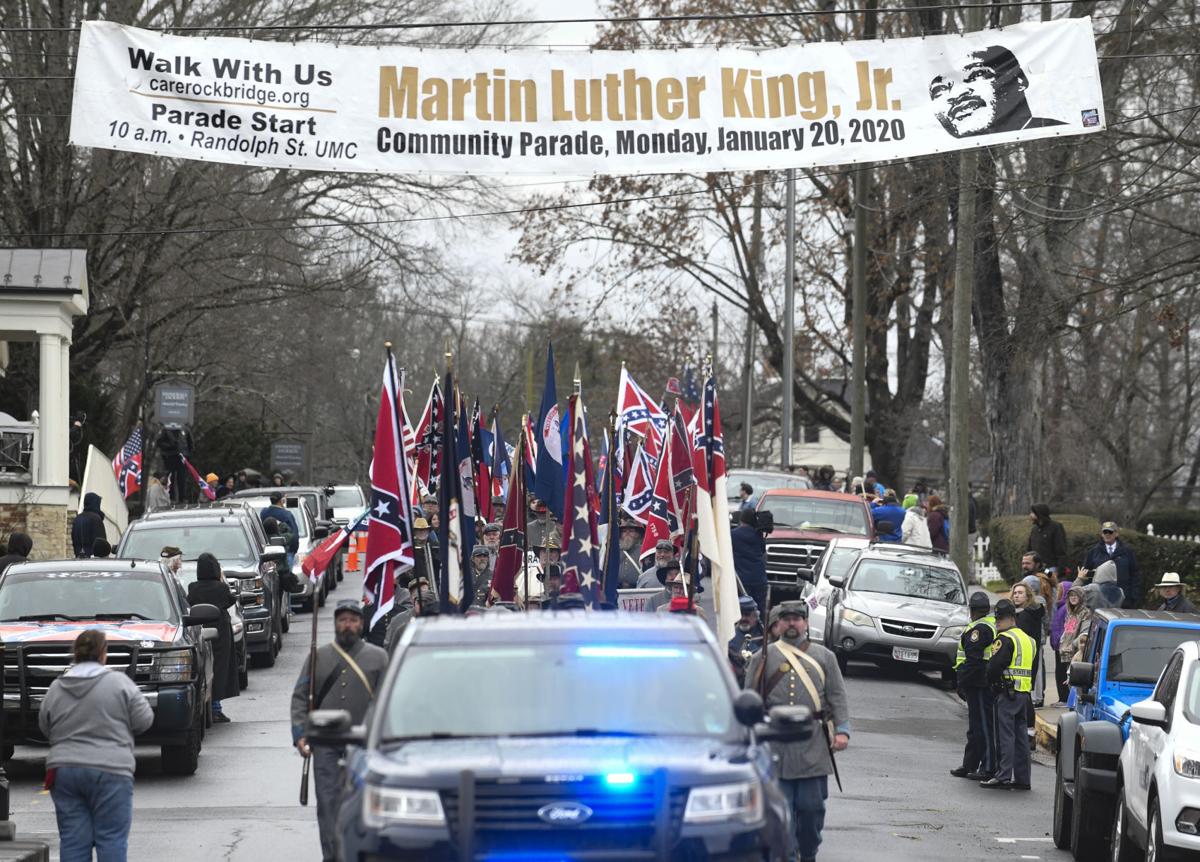4.17.20 Lee and Lincoln, Jackson and King
You may have missed this news. You shouldn’t have. Here it is.
The Civil War ended on April 9, 1865, when Robert E. Lee surrendered to Ulysses S. Grant at Appomattox Court House in Virginia. Within the terms of the surrender, Grant allowed that the turnover of arms by the Confederates “not embrace the side-arms of the officers, nor their private horses or baggage. This done, each officer and man will be allowed to return to their homes, not to be disturbed by United States authority so long as they observe their paroles and the laws in force where they may reside.” Nobody was going to be tried for treason; horses could be used for plowing fields in the coming spring; guns would be used for purposes both lawful and nefarious.
Lee became President of Washington College (later renamed Washington and Lee) until his death in 1870.
Two decades later, in 1889, Virginia created a state holiday in Lee’s honor, Lee Day, which fell on January 19, his birthday. In 1904, the holiday morphed into Lee-Jackson day, to include an honor for Thomas “Stonewall” Jackson, also from Virginia and born on January 21. Four more southern states recognized the holiday.
Meanwhile, in a parallel universe, starting around 1873, a movement in New York to honor Abraham Lincoln’s birthday on February 12 led to Lincoln Day eventually becoming a state holiday. Ten states recognized it including – surprisingly – Texas, but no other southern states did so.
Over the next century, efforts to fold Lincoln’s state holiday into the national honoring of George Washington (who was born on either February 11 or 22; that’s another story), were so resisted by the southern states that, as late as 1968, when Congress passed the Uniform Monday Holiday Act, “Washington’s Birthday” was officially assigned to the third Monday in February but did NOT integrate Lincoln. It’s not “Presidents Day”; officially Lincoln has nothing to do with it.
In 1983, things in Virginia got really tangled, when President Reagan signed into law a federal holiday honoring Martin Luther King, Jr. – who was born on January 15 – to be celebrated on the third Monday in January. In one of those great cosmic giggles, that first MLK Day landed on January 20, right in between Lee’s birthday and Stonewall’s.
In response, a year later Virginia created the most grotesque monster of a holiday imaginable with the creation of Lee-Jackson-King Day, which kinda references January 15, 19 and 21, and definitely combines two Confederate war heroes with a descendant of slaves.
Since 2000, that chimera has been sliced in half, with MLK Day remaining on the third Monday in January, and Lee-Jackson Day serving as a counterpoint on the preceding Friday. Over the past decade, recognition of Lee-Jackson day has dwindled in the Washington DC suburbs, the capital of Richmond, and progressive college towns like Charlottesville and Blacksburg.
And then finally comes this news: last month, Governor Northam signed into law the elimination of Lee-Jackson Day as a Virginia state holiday entirely, effective this July.
In its place, there will be a new state holiday which will be observed on the Tuesday after the first Monday in November. Every resident of the state of Virginia gets the day off so they can go vote. It’s called Election Day.
The Civil War ended in 1865. It’s 2020.
After 155 planting seasons since the close of the Civil War, guaranteed universal suffrage has finally come to the Old Dominion.
